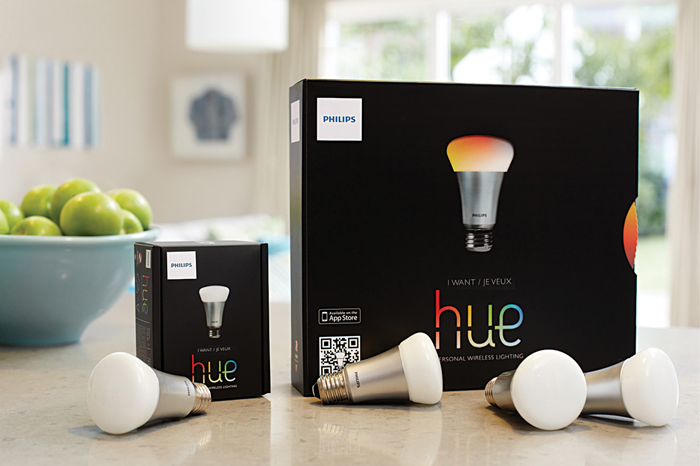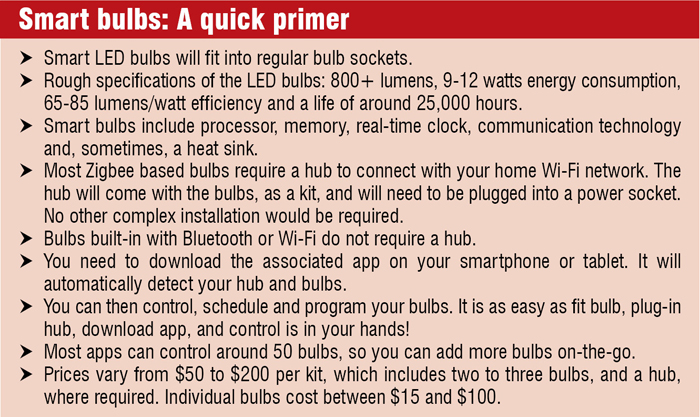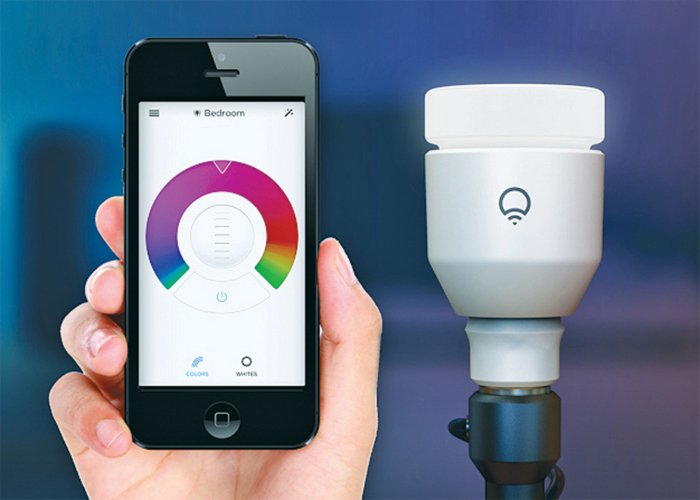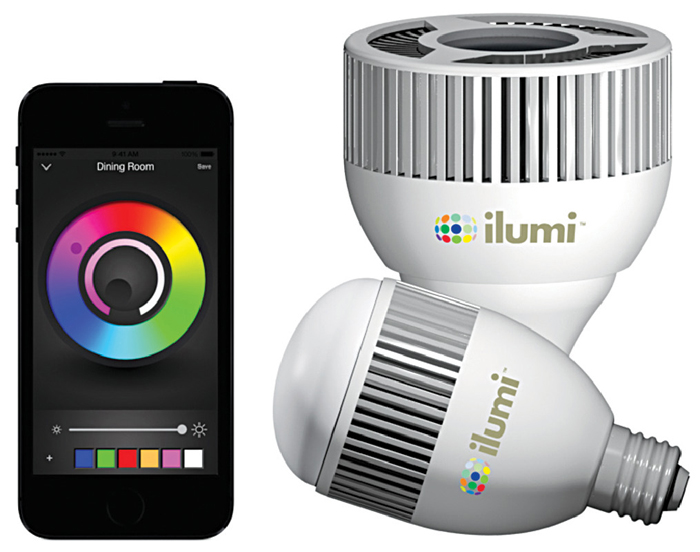Smart lighting technology is on a high! From Internet-connected lights and 3D-printed light emitting diode (LED) optics to light-emitting electrochemical cells and hybrid organic-inorganic LEDs, there is no end to tech innovations in this space. Mind-boggling applications are also being demonstrated and deployed around the world, such as age-specific lighting at retirement homes, supportive lighting at healthcare centres and smart lighting to improve acoustic comfort at opera houses, to enhance the appeal of exhibits at art workshops and deepen devotion at chapels

Across the world, local municipalities are working out how smart lighting can help save energy for their communities, with some having even adopted such solutions. In India too, Philips Lighting, together with the Climate Group, demonstrated to municipal corporations in Kolkata how they could reduce urban emissions and save energy from street lighting. The team showed that LED lighting consumes about 40 to 50 per cent less energy as compared to conventional sodium vapour lamps, and if fitted with smart adaptive controls, the savings could be even higher, in the range of 70 to 80 per cent. Around 300 street lights in the city were then retro-fitted with Philips Roadstar LED streetlights.

While the use of smart lighting products in specialised environments and other public spaces is justified by the savings and other benefits, for a home user it still appears to be a costly proposition. The availability of simple, easy-to-install individual smart light bulbs for home users is also quite low as compared to larger solutions. When users compare the $50+ cost of installing a smart light bulb with the cost of installing an ordinary light bulb, the choice is clearly in favour of the latter, unless they have a very pressing need for smart lighting. Players in the consumer lighting industry are working to bring down the cost but, by the well-known rules of the market, prices can come down drastically only if there is mass-adoption. There sets in a vicious cycle!
Nevertheless, we do see quite a few connected, smart lighting consumer products popping up in international markets, and hope to see this segment grow in India too, in the near future. If you are wondering how a smart light could pep up your home, may be a description of some such products will give you a few nice ideas.
Philips Hue: Costly but exciting start to smart lighting
At close to $200, the Philips Hue connected bulb starter kit does seem a bit overpriced. However, for that price you get three Zigbee based LED light bulbs and a Hue router, which mediates between the bulbs and your home Wi-Fi network. Philips’ kit is positioned as a dynamic and capable system, which despite being very simple for beginners is also highly-programmable for those who wish to do more with it.

All you have to do is connect the Hue, fit the bulbs into the sockets and install an app on your mobile phone. The dots join by themselves, and you are ready to remotely control-and-schedule the colour, brightness and other features of your smart bulbs. With extended features like geo-fencing and if-this-then-that (IFTTT), you can tune the system to your specific needs, like, for example, make the bulb in your kitchen blink when the oven timer strikes zero or set the study-room light to change colour when an email arrives in your inbox. If you are not much into programming, you can wait for somebody else to upload an app that matches your needs, because Philips has allowed third-parties to develop apps for Hue.
iLumi: An Indian mind at work
In June this year, iLumi Solutions received a patent from the United States Patent Office for their wireless lighting control system. Interestingly, iLumi, the award-winning, app-controlled LED bulb has an Indian mind behind it. In 2010, Swapnil Bora and Corey Egan, classmates at Naveen Jindal School of Management, University of Texas at Dallas, presented the concept at their college’s annual Business Idea Competition. Their idea topped the charts and, with the prize money of $5000, iLumi was born!

The iLumi system is simpler than the Philips one because you do not need a hub with it. Just fit the bulb, install the app and you are ready to go. iLumi bulbs, which have a life of up to 20 years, offer bright and efficient multi-colour light with what the company calls HyperLux LED technology. Each iLumi bulb has Bluetooth classic and Bluetooth low-energy (Bluetooth 4.0) built-in, along with a processor, memory and real-time clock.






